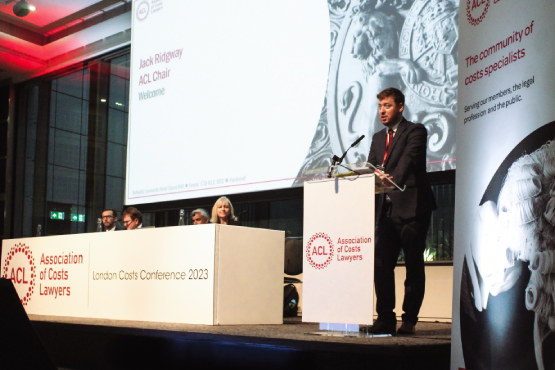ACL annual survey indicates many firms have had a strong year

Few Costs Lawyers have seen a reduction in disputes between solicitors and their clients despite 2022’s Court of Appeal ruling on Belsner, the ACL’s annual member survey has revealed.
The poll of 103 members – around a fifth of the members – also showed that their firms had enjoyed a strong year, with many reporting increased turnovers and more work.
In Belsner, the Court of Appeal sought to curtail the number of solicitor-client disputes but only 12% of respondents said they had seen a reduction in the number of former clients challenging their solicitors’ bills.
Nearly a quarter of Costs Lawyers (24%) said they had seen increased interest in mediation to resolve costs disputes, although a similar number (23%) had never even been involved in one.
On other issues, claimants in two recent cases who presented and maintained an unrealistic and disproportionate approach to their estimated costs were ordered by a High Court master to pay the defendant’s costs of the costs management hearing, but only 9% of respondents reported having had decisions like that before.
There was no sign of solicitors getting much better with budgeting. Only 10% of Costs Lawyers said solicitors always stuck to their budgets, while 54% said they sometimes went over and 24% that they always go over. These figures have not changed significantly over the several years the ACL has asked this question. A third of respondents had seen an increase in applications to vary budgets, which is a higher figure, however.
At the same time, this is keeping the profession busy. Just over half (51%) of Costs Lawyers said their firms/departments had grown in the last year – most by more than 10% – with just 11% saying they had shrunk. This was mainly because of more work coming in (68% of respondents) and recruiting more staff (39%), while 16% increased sales and marketing activity and 12% diversified into other areas.
Members were also asked about the new fixed costs determination process, which deals with disputes about the fixed costs regime that was extended in October 2023 and provides for a fixed fee itself of £500 – a figure that 39% of respondents said would make it very hard to do the job.
Only 14% thought the process would be better for all involved, while 16% considered the risk of seeking a hearing was now too great. At the same time, 23% believed that the decision to disapply part 36 from these matters would only increase disputes.
A significant number of Costs Lawyers (42%) feared that the process would hit some of their colleagues’ practices severely.
ACL chair Jack Ridgway (pictured) commented: “It can be difficult to change behaviours in the legal profession, as solicitors’ continuing struggles to stick to their budgets demonstrate. Helping ex-clients challenge bills is also the business model of some solicitors’ firms, so it is perhaps no great surprise that little seems to have changed since Belsner.
“Costs Lawyers bring skill and professionalism to these matters in an effort to ensure they run as smoothly as possible. The fact that so many have seen their practices grow, despite the economic headwind, is a testament to what they offer solicitors and others.
“It is also encouraging to see the level of recruitment – there has been a strong take-up of the new Costs Lawyer Qualification, securing a pipeline of well-qualified and regulated Costs Lawyers for the future.”
